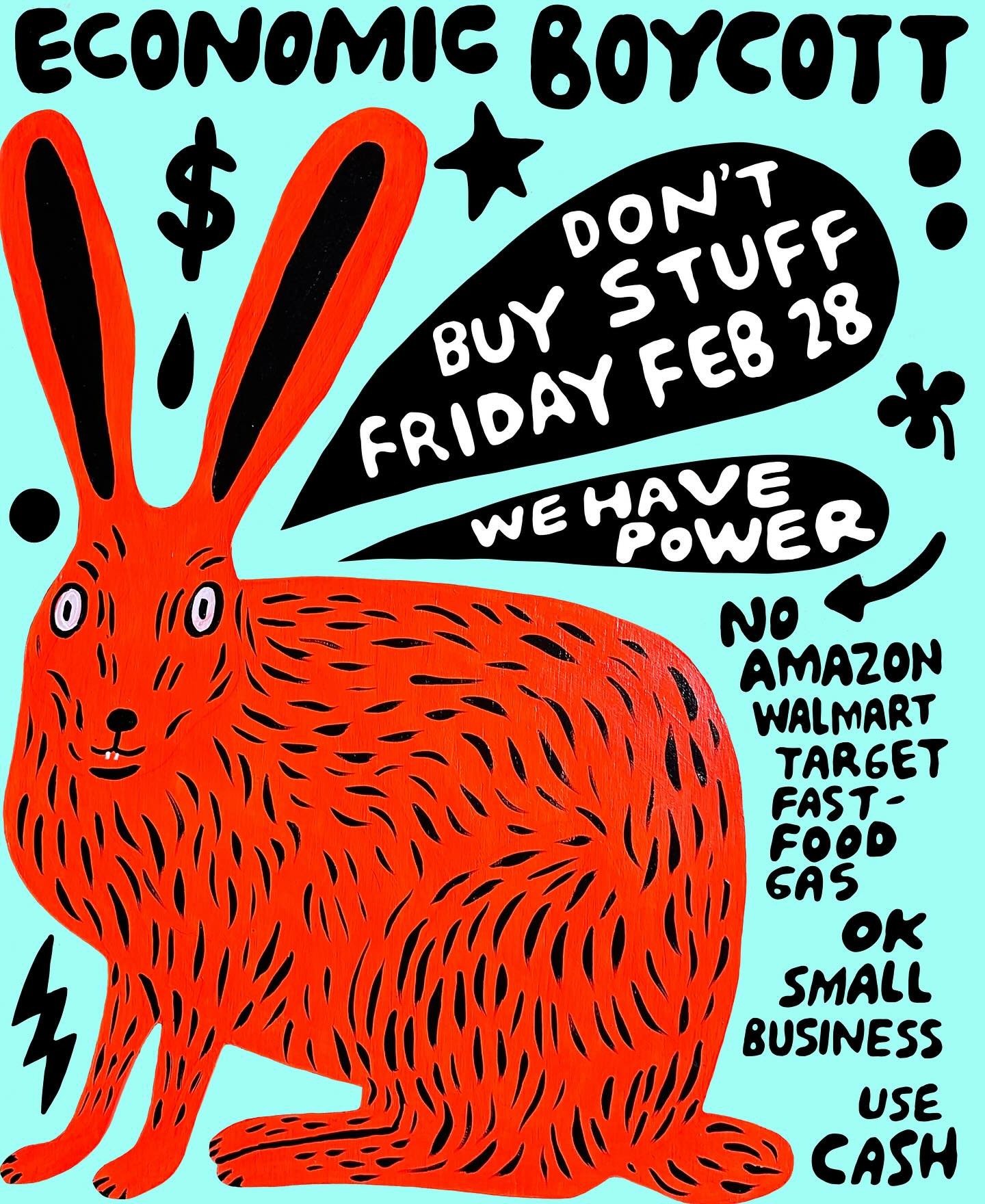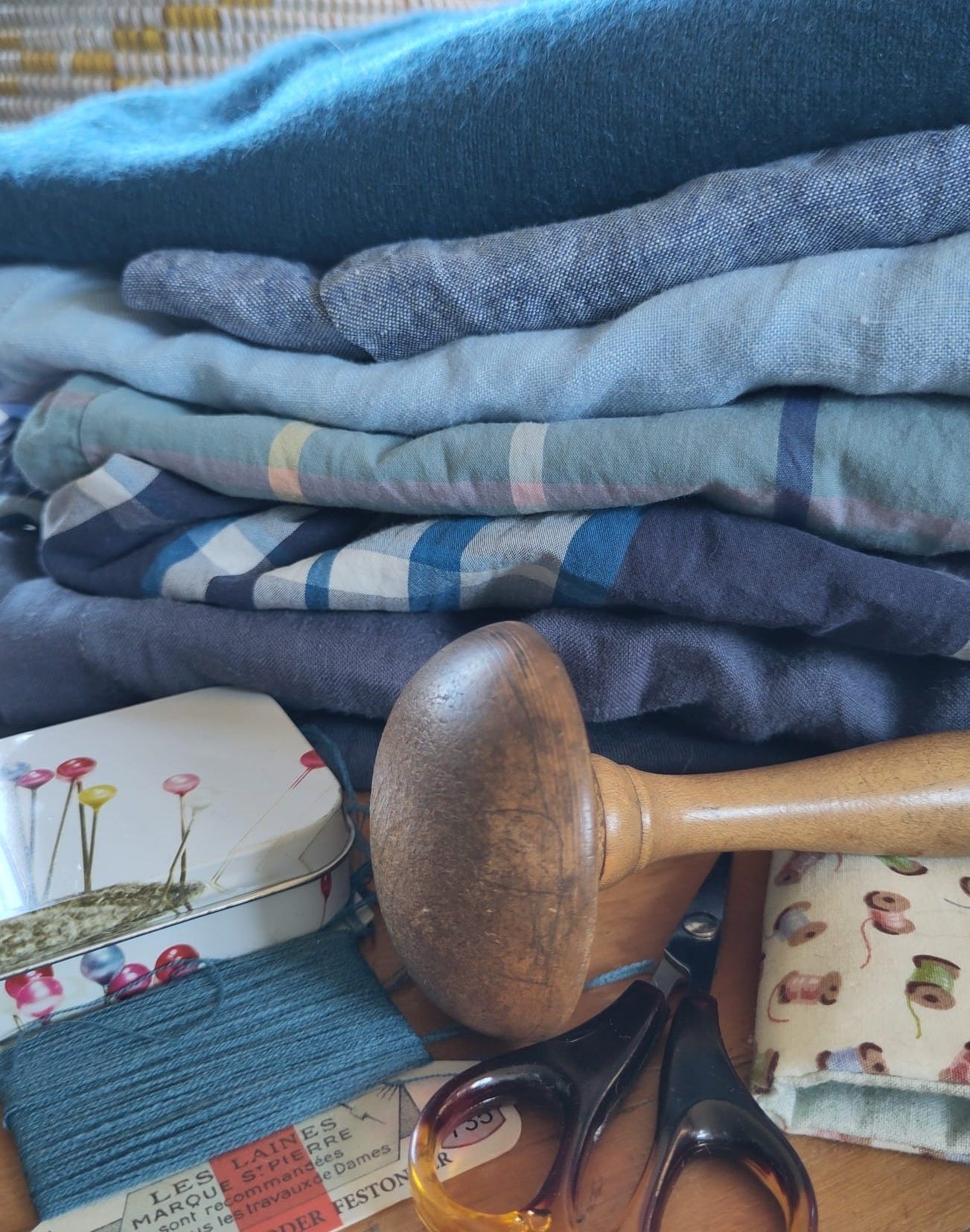As I sit here with my morning cuppa there is a 24-hour economic blackout campaign happening, mainly in the USA. It’s a boycott campaign, created in response to the tumultuous start of the Trump administration and to protest against companies that have consequently rolled back their diversity, equity and inclusion (DEI) policies.
Campaigners at People’s Union USA are asking that we don’t spend any money on this day. This is especially aimed at major retailers (Amazon, Walmart and Best Buy are singled out), fast food chains and fuel stations.
If we have to buy anything, we are encouraged to buy from a local business, and use cash.
Friday's boycott is just one of several happening, primarily in the USA, now. A national boycott of Target coincides with Black History Month. It was launched by civil rights activists in Minneapolis upset that Target has rolled back its DEI programs.
Another boycott that lasts through to the end of the year encourages consumers to buy directly from Black-owned businesses and outlines planned protests in certain months against Amazon, Target and Walmart.
Then, of course, there are the on-going Tesla boycotts.
And I came across this report in the San Francisco Standard. Apparently, Airbnb hosts and guests are leaving the platform following reports that billionaire cofounder Joe Gebbia is working in Elon Musk’s Department of Government Efficiency (DOGE) team.
Will the boycotts work?
The immediate financial impact of a single-day boycott is generally minimal, as consumers often compensate by purchasing more in the days before or after. According to Americus Reed, professor at the University of Pennsylvania, the real power of the one-day boycott isn't in hurting the business financially, but in signalling 'collective dissatisfaction and greater media attention.'
But it’s clear that if a movement gains traction and leads to longer-term behavioural shifts among consumers it will have greater impact.
The current campaigns are aiming for this long-term impact. The People’s Union USA states this on their website: February 28 is a symbolic start to economic resistance, a day where we show corporations and politicians that we control the economy.”
So will I be boycotting companies like Amazon and Airbnb?
I’m happy to say that I’ve never (knowingly) bought from Amazon. I have stayed in a couple of Airbnbs but have always had my concerns about the negative effect they have on the housing market. I will be avoiding them in future and don’t think it will be too much of a hardship.
In fact I find that reducing my options makes life easier as there’s less to choose from. (Have you ever spent hours looking for the perfect holiday accommodation? I suggest you keep it simple and perhaps start here: Sawday’s and Landmark Trust Holidays.)
Slow Shopping
I like to keep my shopping slow and simple, I like to see what I’m buying in real life, and mainly buy from a small number of chosen establishments. I love a good market!
Most of my furniture is second hand, or I’ve had it for years. I bought my sofa over 30 years ago, have had it recovered twice, and it’s still going strong. My kitchen dresser is full of charity-shop, vintage and antique finds (and a few heirlooms!), and if I need new clothes (apart from smalls) I look in charity shops and dress agencies first.
Perhaps I’ll share some of my favourite places to shop second-hand in another post but in the meantime you can get some inspiration from Caroline at Knickers Models Own who I heard speak recently about her New To Me campaign.
I must add that slow shopping is not easy in today’s society and I’d struggle to give up shopping in supermarkets and buying some things online. But I believe in buying quality over quantity and that targeted, long-term actions will help to change the culture of our economy, from one based on over-consumption, greed and division to a fairer, kinder, greener one.
I hope these current campaigns in the USA will be the start of something bigger.
Mending every day in March
As my own little act of rebellion I plan to mend something every day in March. In addition to getting the repairs done and developing my mending skills it will be a very meditative process. I will have time every day when I can let go of all other thoughts and just concentrate on my stitches. Some days I might take just five minutes, other days longer. Most of the repairs will be done by hand but I may drag out my trusty old sewing machine for one or two items.
I will call out to friends and family if I run out of items, although everyone is welcome to bring items for repair to our monthly repair cafe in Kendal. You can also join our sewing group, or one of our workshops if you’d like to improve your mending and making skills.
I’ll take pictures of my repairs along the way, share the before and afters on socials and would welcome anyone who would like to join me along the way. Just one repair can make a difference!
Please leave a comment if any of this resonated with you. How much are you prepared to give up, to stand up for what you believe? Where would you draw the line? I’d genuinely love to know 💚






